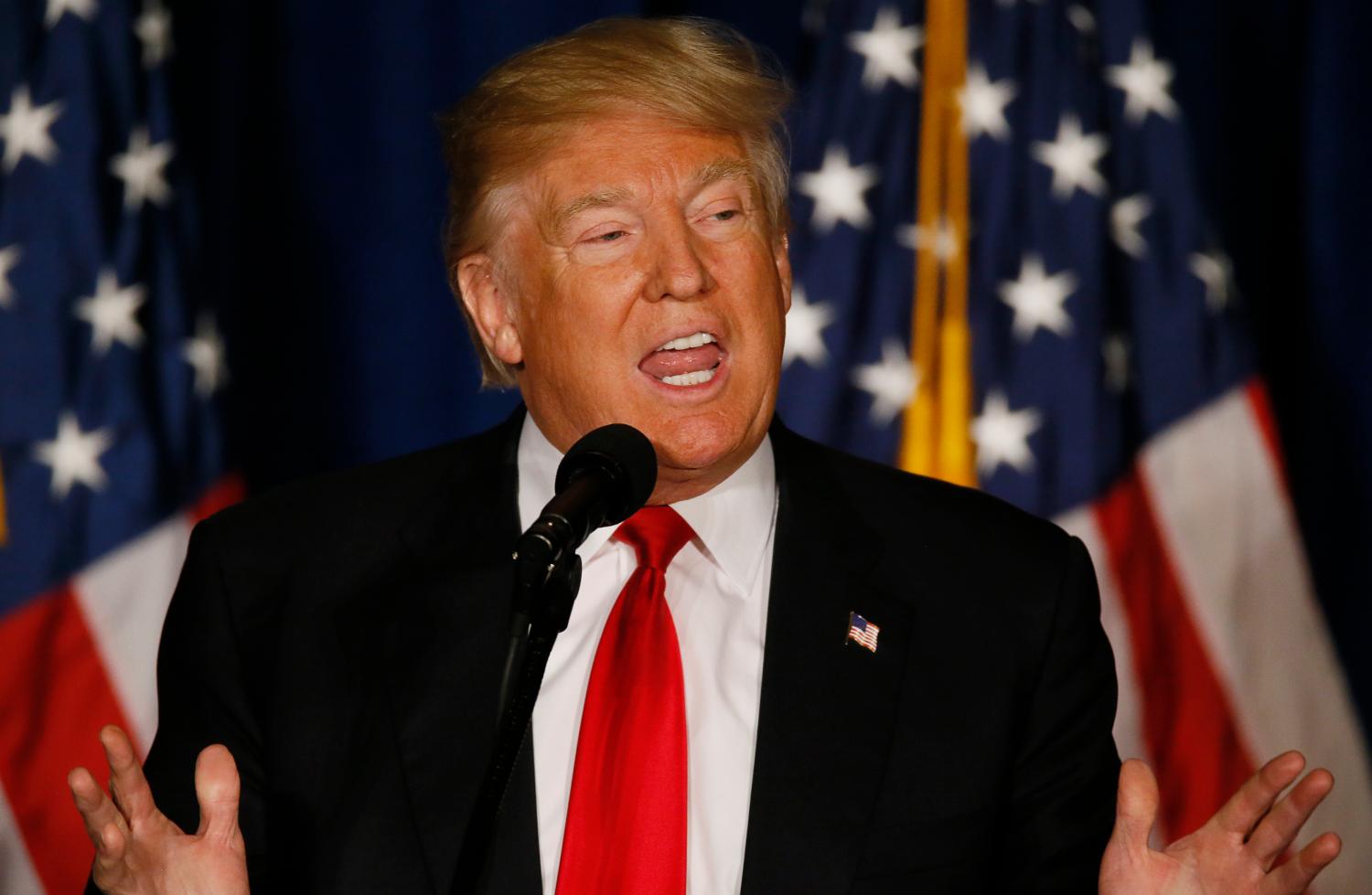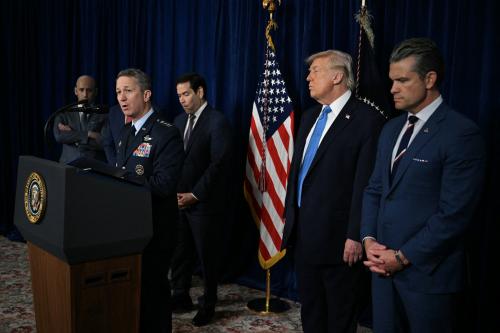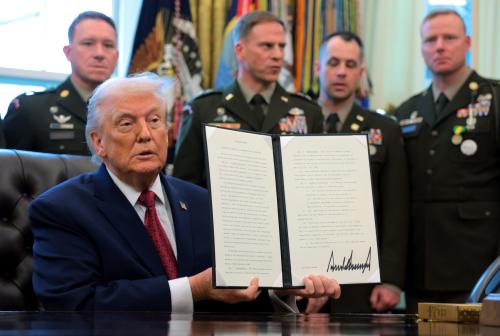Donald Trump will deliver a major foreign policy address at the National Press Club on Wednesday at an event sponsored by Center for the National Interest. This is a crucially important speech for Trump so let’s look closely at why he is giving it, why he will say what he will say, and how to interpret it.
Let’s start with the obvious. Trump has a worldview that is anathema to the Republican Party’s foreign policy establishment. He is at best indifferent to alliances and most probably deeply hostile. He does not believe the United States gains any benefit from having forward deployed forces in Asia and Europe. He opposes all free trade deals negotiated by previous U.S. presidents. He uses “America First,” the call to arms of Charles Lindbergh and the isolationists of the 1930s, and told The New York Times that he would need to go back to the 19th century to find a president whose foreign policy he admires.
Trump’s unique worldview explains why he has failed to put together a top class foreign policy team. Very few Republican foreign policy experts agree with him on the substance. One hundred and twenty-one members of the GOP national security community signed a letter condemning his worldview. In fact, the distance between Trump and the GOP on foreign policy is arguably greater than on any other issue. Who, for instance, can identify the difference between Trump and the GOP mainstream on taxation or education? There are some gaps on health care but nothing compared to the vast gulf on foreign policy.
The rest of the Republican establishment—which is to say Congressional and gubernatorial Republicans and the business elite—are somewhat more flexible on ideology than the foreign policy experts but they too are spooked. They cannot accept a nominee who will destroy NATO and get into bed with Putin. They need something that they can point at and say with a straight face that Trump will be a responsible commander in chief.
Above all, he will present himself as a realist and nationalist.
Wednesday is the beginning of a negotiation process between Trump and the GOP establishment where he tries to revise his worldview into something that they can live with, at least for a while. Its significance is that it may give us a glimpse into the compromise that paves the way for his nomination. Instead of calling to disband NATO and the U.S.-Japan alliance, he may try to present it as a matter of burden-sharing and fairness. Instead of opposing trade on principle, he will oppose it in the specifics. He will likely say little or nothing defending Putin but may call for cooperation with Russia to fight the Islamic State. Above all, he will present himself as a realist and nationalist instead.
It is significant that the speech is being hosted by a realist think tank, the Center for the National Interest. Realists have been marginalized in the Republican Party since the George H. W. Bush administration. Leading realists have criticized alliances in similar terms to Trump and some favor repairing ties with Russia. We may be seeing some early dating between the realists and Trump to see if a lasting relationship is possible.
The test of whether it succeeds in its purpose is whether members of the Republican domestic establishment welcome it. The test of whether it is a significant shift on Trump’s part is whether the Republican foreign policy experts who signed the letter rejecting his foreign policy have a change of heart. The smart money is on yes to the first and a no on the second.
Note: The location of Trump’s speech has changed to the Mayflower Hotel.
The Brookings Institution is committed to quality, independence, and impact.
We are supported by a diverse array of funders. In line with our values and policies, each Brookings publication represents the sole views of its author(s).





Commentary
What to look for in Trump’s foreign policy speech
April 26, 2016